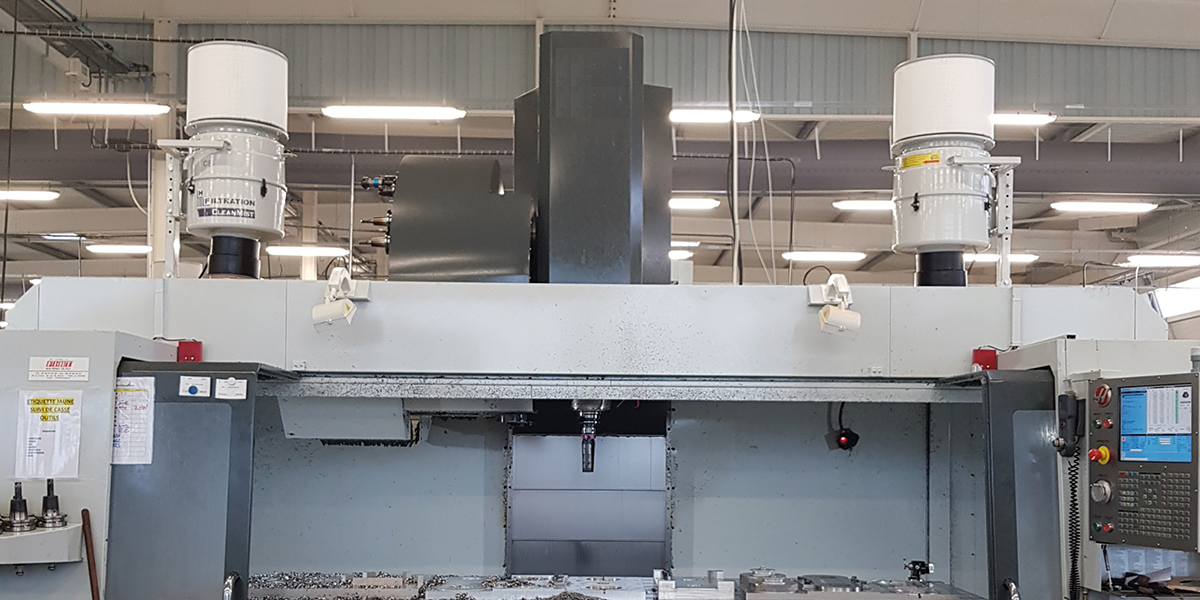Centrifugal filters are designed to purify and break down the oil mists produced by industrial plants, precisely separating the air from the oil (or from the coolants used), collecting the latter to return it to the production cycle or to dispose of it.
The oil mists enter the filter passing through a network positioned at the inlet in order to prevent solid materials from accessing the system, then being conveyed inside the filter itself. Here, through a conical diffuser, the particles are equally distributed inside the filter and centrifuged at high speed to be pushed towards the external filter panels. Crossing them, the particles are transformed into droplets due to the coalescence effect, drained and conveyed into an exhaust pipe to be collected.
The purified air is then pushed into the upper part of the filter, where it will then be returned to the environment after any treatment through a final cartridge or an electrostatic filter.
Application of centrifugal filters
Centrifugal filters using the coalescence principle to recover the oils present in the oil mists can be applied for the aspiration of:
- Machine tools
- Lathes
- Metal washing machines
- Foratrici
- Fresatrici
- Alesatrici
- Machining centers.
The success of this type of centrifugal filter lies in the ease of installation, the high efficiency guaranteed, the low noise level, the reduced maintenance and the low consumptions necessary for its operation. Furthermore, thanks to the coalescence principle, the oil particles dispersed in the atmosphere will be recovered, collected and, consequently, returned to the plant's production cycle.



